After the show, I told myself that, from now on, I would go to a concert when I felt like I needed it… until the next time. This sounded a lot like the relationship I’ve had with sex. As someone who is demisexual within hookup culture, sex has rarely been able to occur organically or exist as itself for me. Sex was something I tended to have when I wanted something else, something I couldn’t get, like human touch. The experience was rarely satisfying; men are experts at fucking without touching.
Because of that, there is another way that concerts and hookups are similar for me: I can’t do either of them sober. Much like in the past I have used weed to bypass my demisexuality and have sex, I have had to use weed and alcohol to get the better of my social anxiety at shows. I always assumed that I connected to punk and metal through queer rage. While that might not be entirely inaccurate, I’ve been wondering if there might not be another reason. After all, if that were the case, where are the queers? No, maybe it's another kind of rage, one for which I don’t quite have a name yet. So, despite my anxiety, I take my edible, I drink my beer, and I go to the show. And, as I stand there, I realize that, even though I would like to be able to claim the contrary, I don’t do it because I have any kind of guts. I do it because I love it so much. And that’s how I get to my definition of love.
0 Comments
I don’t care if forever never comes ‘Cause I’m holding out for that teenage feeling -Neko Case, “Teenage Feeling” I’ve always been a sucker. Not as in gullible, mind you. What I mean is that, when I was seven years old, I watched Dr. Zhivago over two nights as it played on TV and, when the titular character saw the woman he loved as he passed by her on a tramway and ran after her, dying of a heart attack while she kept on walking, completely oblivious to the drama unfolding behind her, I also died a little. It became my favourite movie, as it would for any normal seven-year-old. When I saw it on VHS a few years later at the store, still split over two cassettes, I bought it with the hard-earned money I made babysitting my cousins. In 2011, it played as part of a film classic series at Cinéma Banque Scotia. I didn’t miss my chance to see it on the big screen. I was afraid that it would disappoint now that I was a more critical adult but, as I was watching it, the thought that came to mind was the phrase my grandmother had uttered when she watched Fly Away Home (also a favourite of mine): “They don’t make them like this anymore.” I’ve always been curious. We speak of acquired tastes. Taste is a muscle. I always wanted to enjoy more. I liked eating so much that it would upset me when I didn’t like a particular food. Like olives. So, every once in a while, I would have one, just to see if my taste had changed. As a result, there isn’t much I don’t eat today, including olives. The first time I ordered a coffee, it was because I wanted to be like the Gilmore Girls. Every sip made me gag, but I was in front of friends, so I kept on drinking, trying my best to hide how I truly felt. Now it’s a treat I can’t go without for one day. I’m the kind of asshole who talks about his preferred tasting notes when trying to figure out which bag of beans to buy. * You have to suppress a lot of yourself to sleep with men. You have to pretend you’re an empty shell. You might even have to use weed or alcohol to bypass your demisexuality. It’s only because of the pandemic that you realize “Wait… So I don’t have to do this?” * When I was still in university, I decided to make a list of all the things I wanted to do before summer was over to avoid what usually happens: so many plans at the start and so few of them achieved by the time the fall semester came around. My plan worked. When school started, I’d checked off every item on the list except one: going to my first dance show. I kept it in the back of my mind until the end of the semester, when a classmate and I went to see Carol Prieur performing Marie Chouinard solos, a show I picked simply because I saw an ad for it when I walked through Place des Arts. The show ended with Prieur physically interpreting Henri Michaux’s drawings while frantically running up and down the stage like eyes making their way across the page line by line. When the performance ended, everybody gave her a standing ovation. Everybody except me. Not that I didn’t want to. I couldn’t. My legs no longer worked. I guess that’s why we say we’re floored. It’s not just metaphorical language. I went from never having seen a dance show to going to see every dance show in Montreal. * I was lucky enough to go to my first punk show because some of my coworkers at Cagibi were in a band called Pantyhos. So I made my way to Fattal to catch their set at Death House, except I couldn’t “ask a punk” where it was since I didn’t know any. Luckily, I ran into another one of my coworkers in the parking lot and he showed me the way. I’ve gone back to Fattal many times over the years and to hardcore shows more generally. Sometimes, at a show, I would get emotional; I would think about the child I used to be, about how if I told that child that I would one day be going to punk and metal shows and they would be my favourite thing, the child I was would reply “No, that’s impossible. There’s no way you’re talking about me.” It makes me excited about what else I will discover that I don’t even know yet. It makes me curious about who I have yet to become. Shock Online events. Denial Ça va bien aller. “We’re all in this together” and other positive affirmations. Early in the pandemic, in a panel on Zoom, one of the curators where I work said that he feared that all new works would be about the pandemic, although he understood that it would be something that people would need to process. Now I fear that none will be. Even the most realistic movies and TV series have gone out of their way to create a world where the pandemic never happened. Judges on Nailed It sat a bit further apart. If there were post-pandemic generations, they would not believe us. Anger When a child bumps into a chair, they will be mad at the chair for hurting them. Bargaining If I wear a mask when I walk into a restaurant, can I take it off when I sit down to eat? Depression If we have not been able to adapt to the pandemic, we will most certainly not be able to adapt to climate change. Testing I tell a friend that I might make an exception for my birthday and go to a punk show. “When’s your birthday?” “In five months.” She laughs. Acceptance Things are now changing so fast that, because works are programmed years ahead of time, by the time they are presented, they are already outdated. To present works that are still relevant, we might have to do away with programming works altogether and rather offer artist residencies that end with a presentation to minimize the amount of time between programming and presentation as much as possible. Most works I have had the chance to see since the beginning of the pandemic have felt completely disconnected from reality. The only time I didn’t feel that way was at the outdoor Phoebe Bridgers concert at Parc Jean-Drapeau, even though they had to interrupt the show four times because people in the audience kept falling unconscious, including twice – fittingly – during their climactic song “I Know the End”: “I’m not afraid to disappear / The billboard said ‘The end is near’ / I turned around, there was nothing there / Yeah, I guess, the end is here.” As the nihilistic characters in Roger Avary’s The Rules of Attraction (based on Bret Easton Ellis’s novel) stumble towards their violent demise, they attend a series of parties the names of which move from the mundane to the apocalyptic: A Pre Saturday Night Party Party, Dressed to Get Screwed Party, The Edge of the World Party, and – finally – End of the World Party. I was wondering when such themed parties would begin occurring, but of course we haven’t reached the acceptance stage yet. Then I saw the colourful, balloon-filled poster for grindcore band Captured! By Robots’s USA & Canada Fall Tour 2022: “FINAL FUNERALS! IT’S YOUR LAST CHANCE TO DIE!!! You’re invited!! TO THE FUNERAL FOR THE HUMAN RACE / COME CELEBRATE THE END OF HUMANITY”. The few balloons that aren’t filled with human skulls are adorned with a series of tormenting phrases: “YOU DESERVE THIS / STUPID IDIOTS / YOU DID IT TO YOURSELVES / YOU’RE DONE / HAHAHA / YAY!!” It’s possible that the poster flows from the concept at the heart of the band – human singer JBOT performs as a man enslaved by guitar/bass- and drum-playing robots – but it still felt strangely à propos. When we used to talk about timeless works, of course we didn’t really mean timeless; we meant works that remain relevant to human beings across time. Our idea of timelessness was like Milan Kundera’s in his novel Immortality – the images of others that persist, whether we knew them or not – hilariously androcentric and short-sighted. We no longer need timeless works; we need works that are relevant to the times we are living in. Or, if works are to be timeless, then we must mean that they will be relevant not to human beings but to mushrooms, worms, cockroaches. “What another would have done as well as you, don't do. What another would have said as well as you, don't say, -- written as well as you, don't write,” wrote André Gide in his essential Les Nourritures terrestres. Now, I would add “What you would have done as well in 2019, don’t do.” From now on, every show should be titled We Are Dancing on Our Future Graves. “I write to mourn everything.” (April 3, 2014)
“Are you happy?” the former curator at my work asked me. Funnily enough, a co-worker and I had just been talking about this. I always felt that each person was their own barometer. I consider people who are stupider than me stupid; people who are smarter, smart; people who are more beautiful, beautiful; people who are uglier, ugly. Given that no one is average in every way, our perception of others and ourselves is necessarily skewed. So how could I know if I’m happy? Sometimes I think “How could I possibly be happy?” At other times I think that maybe I’m the happiest person on Earth and I just don’t know it. * I remember going to the Liberté dairy production facility in Saint-Hyacinthe with my brother. He was interviewing workers about sustainability for a university assignment and he’d asked me to videotape it. They told us that they’d created a yogurt drink with the most eco-friendly packaging they could produce. The product had been a commercial failure because the container had the dreaded carton spout instead of the less eco-friendly but more convenient plastic cap. Customers want to make more environmentally friendly choices, they said, just as long as they don’t have to make any sacrifices. * After being cooped up in Montréal for two and half years because of the COVID pandemic, I go spend the Holidays by the harbour in St. John’s just as cases are rising again with the Omicron variant. Still, men on Grindr want to hook up. I think about erotic thrillers, one of my favourite movie genres, about men who are willing to risk death for sex. “They should make an erotic thriller that takes place during a pandemic,” I think. Wait a minute… This isn’t the first pandemic. Erotic thrillers reached the height of their popularity in the early 90s before the internet eradicated the need for them with easily accessible porn. I google “erotic thrillers AIDS”. It only took me thirty years to make the connection. * “[The] death instinct would thus seem to express itself – though probably only in part – as an instinct of destruction directed against the external world.” –Freud, The Ego and the Id (1923) * At the Liberté production facility, the person in charge of sustainable development told us that, because it is the action they can easily do, consumers tend to only think in terms of recycling. And, because plastic no. 6 isn’t recyclable in most areas, they try to avoid buying products that use it. Instead, they buy products that use more plastic. They feel better about recycling more plastic than they do about buying less. * I always felt that every inch of happiness was something that had to be fought for and, even more importantly, protected; that my happiness was hanging by a thread. The pandemic made me realize that everyone’s happiness is. People would rather die than not stand in line to consume an underwhelming brunch. * “In the animal world we have seen that the vast majority of species live in societies, and that they find in association the best arms for the struggle for life: understood, of course, in its wide Darwinian sense – not as a struggle for the sheer means of existence, but as a struggle against all natural conditions unfavourable to the species. The animal species in which individual struggle has been reduced to its narrowest limits and the practice of mutual aid has attained the greatest development are invariably the most numerous, the most prosperous, and the most open to further progress. The mutual protection that is obtained in this case, the possibility of attaining old age and of accumulating experience, the higher intellectual development, and the further growth of sociable habits secure the maintenance of the species, its extension, and its further progressive evolution. The unsociable species, on the contrary, are doomed to decay.” Peter Kropotkin, Mutual Aid: A Factor of Evolution * What was I thinking those times I had unprotected sex? Mostly that it didn’t matter, that I wanted to die anyway. * I watch Theo Anthony’s Rat Film, an essay documentary about Baltimore’s rat problem. “There’s never been a rat problem in Baltimore,” a city exterminator tells us, “it’s always been a people problem.” Anthony brings up American ethologist and behavioural researcher John Bumpass Calhoun. Between 1958 and 1962, Calhoun conducted a series of experiments on Norway rats. He created a “rat utopia”, an enclosed space in which 32 to 56 rats were given unlimited access to food and water, enabling unfettered population growth. However, the population never exceeded 200 rats and stabilized at 150. By the end of the experiment, the only ones still alive had become asexual. Since then, I’ve only been able to see Grindr as a virtual cage. * “Abuse of the military metaphor may be inevitable in a capitalist society, a society that increasingly restricts the scope and credibility of appeals to ethical principle, in which it is thought foolish not to subject one’s actions to the calculus of self-interest and profitability. War-making is one of the few activities that people are not supposed to view ‘realistically’; that is, with an eye to expense and practical outcome.” Susan Sontag, AIDS and Its Metaphors * I put my recycling and garbage on the curb. The next day, it is gone. Out of sight, out of mind. * I watch Nosferatu the Vampyre. In Werner Herzog’s retelling of the story, Count Dracula moves from Transylvania to Wismar, spreading the Black Plague across the land. Bodies pile up on the streets. * “This metropolitan world […] is a world where flesh and blood is less real than paper and ink and celluloid. It is a world where the great masses of people, unable to have direct contact with more satisfying means of living, take life vicariously, as readers, spectators, passive observers: a world where people watch shadow-heroes and heroines in order to forget their own clumsiness or coldness in love, where they behold brutal men crushing out life in a strike riot, a wrestling ring or a military assault, while they lack the nerve even to resist the petty tyranny of their immediate boss: where they hysterically cheer the flag of their political state, and in their neighborhood, their trades union, their church, fail to perform the most elementary duties of citizenship. Living thus, year in and year out, at second hand, remote from the nature that is outside them and no less remote from the nature within, handicapped as lovers and as parents by the routine of the metropolis and by the constant specter of insecurity and death that hovers over its bold towers and shadowed streets – living thus the mass of inhabitants remain in a state bordering on the pathological. They become victims of phantasms, fears, obsessions, which bind them to ancestral patterns of behavior.” Lewis Mumford, The Culture of Cities * POZ parties. * In his memoir To the Friend Who Did Not Save My Life, Hervé Guilbert chronicles his fight with AIDS. In one chapter, he sees an old friend, a psychiatrist, who tells him he has found a good trick to talk to his patients about AIDS. He tells them, “Don’t pretend you’ve never wished for death at one moment or another before you contracted this disease! Psychological factors are crucial to trigger AIDS. You wished for death, well, here it is.” * My friend Aurora and I are hanging out on her balcony on a cold spring day, a spicy hot chocolate in hand. I complain about my incessantly runny nose. “Maybe your body needs to expel liquid,” she says. “When’s the last time you cried?” “I shed a tear this morning, actually.” “Why did you shed a tear? I thought you were happier than you’ve been in years.” “I am. Maybe specifically because I’ve been more alone than I’ve been years. So it’s bittersweet.” I asked you why you said I was funny when I was crying.
You’d asked me why looking at the ocean makes me cry. But to put it into words, to say it out loud, is to cry. You feel weighed down by everything and the ocean stretches out before you, seemingly infinite, and you are nothing but something that could drown. All this pain for nothing. “I was smiling because I was endeared,” you said, “so I said ‘you’re funny’ to explain why I was smiling.” And I am nothing but something that can drown. «Elle comprenait seulement que rien n’est plus fort que cet instinct de revenir là où on nous a brisé, et de répéter cet instant pendant des années. En pensant seulement que ce qui nous a sauvé une fois pourra nous sauver à jamais.»
Alessandro Baricco, Sans sang Even though I only live an hour away from my family, I hadn’t seen them in eight months. The pandemic was to blame, of course, but even at the best of times I would only go see them every few months. There is that no public transport goes to Lacolle. More importantly, there is that I have really bad FOMO. I saw about 300 artists in concert last year. But COVID cured me of that. Now I can be in Lacolle without thinking about all the things I’m missing because there is no longer anything to miss. The pandemic has taken with it all of the advantages of living in the city and left only its inconveniences: too many people everywhere and too little of anything else anywhere. It was the best time I had at my parents’ since the summers before I first moved out when I was nineteen. Why the summers? Because, free from going to school, I was alone. Reading by the pool. Listening to music as loud as I wanted since our closest neighbours lived 350 metres away. (I MISS THIS. Maybe my love for concerts has been little more than an attempt to recreate this, which would partially explain why I tend to prefer underattended shows.) Reading in the bathtub. Watching movies. I’d bought a TV with the money I made working on the farm so I could watch movies in my room after everyone had gone to bed. In the winter, its light would sometimes reveal a mouse travelling through the house at night. A few days later, we would inevitably find it in the trap in the kitchen closet. I remember I’d asked my mom to buy me a cup so disgustingly huge that the first one broke as she brought it home. I would fill it with hot chocolate that I would sip on as I read in bed. After the infamous ice storm of 1998, I dragged a twin mattress in the office downstairs, shoved it in a corner, and covered it with cushions and pillows. I would spend my days reading there. This time, I read five books in the fifteen days I was there. Reading on my parents’ balcony, I saw a hummingbird hovering over the bushes and a doe eating in the field across the street with its baby deer. Just like Marchbanks in George Bernard Shaw’s Candida, “I had my books. I had Nature.” The fewer humans there are, the more life there is. Because I had brought weed oil with me, it was the first time I was able to get stoned at my parents’ house. One such night, after they had gone to bed, on the way to my bedroom, my arms filled with snacks, a thought hit me: being high aside, here I was, finding solace in doing the same thing I had been doing over two decades before, in doing the same thing I had been doing ever since. My source of comfort had never been a person. And, if it was, that person was me. Being alone wasn’t something that had been done to me; it was something I had chosen. As Brittany Julious wrote in her own personal essay about solitude, “This solitariness was […] about doing the things I’ve always wanted to do. It was about being the person I’ve always wanted to be. It was about seeing things myself, staying curious, learning, laughing, confronting my fears, finding what I love and never letting go.” I don’t remember the movie I watched that night. But I know it was extra good.
She cut the stems and put the flowers in the vase at the centre of her heavy, wood kitchen table. When she was done, she would always take a step back and look at the arrangement, taking it in. Then, she would let it become part of the space in which she lived. She lived in a space of yellow flowers.
“They’re beautiful,” one of the ghosts said. “Aren’t they?” she replied. I should get some blue flowers tomorrow, she thought. That would be nice with the yellow flowers. At the market, she’d also picked up the freshest fruit she could find. She would spend the day making jam. She had a closet full of jars filled with preserves, for winter. When she was done, she made herself a cup of tea and brought it to the living room. She sat down on the couch, put her cup down on the coffee table, and picked up the book that was lying next to it. Across from her, a ghost was sitting in the armchair, reading a book of his own. She looked at him and, after a little while, when he was done a paragraph or a page, he looked up at her and smiled. She smiled back and began reading. They all sat down around the dining room table. They said grace, not because they were religious, but because they were thankful. At night, she would climb into her king size bed. She could hear the wind passing its hands through the weeping willow outside her bedroom window. Sometimes, it almost sounded like ocean waves. A ghost would always follow her into bed and wrap itself around her, so that she was always already dead, so that she would never worry about anything. Yes, tomorrow I will buy blue flowers, she thought. The fire crackles. He’s sitting at the perfect distance where he can barely feel the heat, so that he is reminded of it every few seconds, every time it momentarily builds up, enveloping him. It’s only when it makes a sound, when a flame breaks a piece of the wood that he looks up and observes the fire for a moment. He always found beauty in anything that refuses to remain still, in anything that refuses to be captured.
His left hand moves to the side blindly. It doesn’t need to see; it knows where it’s going. It makes this movement every night, gently moving until it feels the warm ceramic in its grasp. His hand has become the shape of a cup. There is even a space in between his pinky and his ring finger, where the handle rests where no ring ever has. He takes a sip of the soothing tea as his eyes travel from the fire to the book he is reading, each word waiting for him. The door is barely open when his dog runs out like it’s been locked inside all winter. Its long blond hair hovers a centimetre above its skin in its excitement. The dog always remains just on the periphery of the man’s vision, ready to jump on anything that moves. Even if it were to chase a rabbit, it would always find its way back to the man, back to its home. For the man, these walks are an excuse to get out of the house, to enjoy the nature that surrounds it, the nature inside him. When he looks at a tree, he sees a more timeless version of himself. For him, it’s like watching a movie where nothing happens, the best movie ever made. Every morning, he makes the same breakfast: an egg fried in the fat from the bacon he cooked in the same pan, toasts, and fruit preserves. In the summer, it’s fresh fruit. He makes a pot of coffee as soon as he wakes up, though he only ever drinks one cup with his breakfast. The rest of the pot is merely for the smell. When he’s done, he sits at his desk and writes. He writes about the places he’s never been, the things he’s never done, the people he’s never met, the emotions he’s never felt. When he’s done for the day, he takes the pages and places them in a box. The only label the box has is the year that the given pages were written. It’s as arbitrary a way of labeling work as any other, he feels. When he dies, they’ll find the boxes and do what they want with their content. He won’t care. He’ll be dead. When he can no longer write, he follows the river into town, where he buys the little he needs. The walk takes him about thirty minutes. There, he has the only human interaction he has, outside of books and music. In the evening, he listens to the radio. This is all he does. He sits in his armchair – he sometimes wishes he would never get out of it – and he listens. Sometimes, he closes his eyes so he can hear better. Other times, he walks around the room so that the music can become his body, can move through him. If his arms float away from his torso, it means he’s dancing. At night, he climbs into bed with his book. When all is quiet, he can hear the waterfall softly murmuring outside his window. It’s the white noise he needs to stave off the anxiety of silence. He reads until his eyes close. Only then does his dog jump on the bed and lie down on his feet, keeping them warm. One day, his dog runs off and does not come back. That night, when he goes to bed, he feels the ghost he saw when he was seven years old climb into bed with him. The next morning, he does not wake up. |
Sylvain Verstricht
has an MA in Film Studies and works in contemporary dance. His fiction has appeared in Headlight Anthology, Cactus Heart, and Birkensnake. Archives
October 2023
Categories
All
|
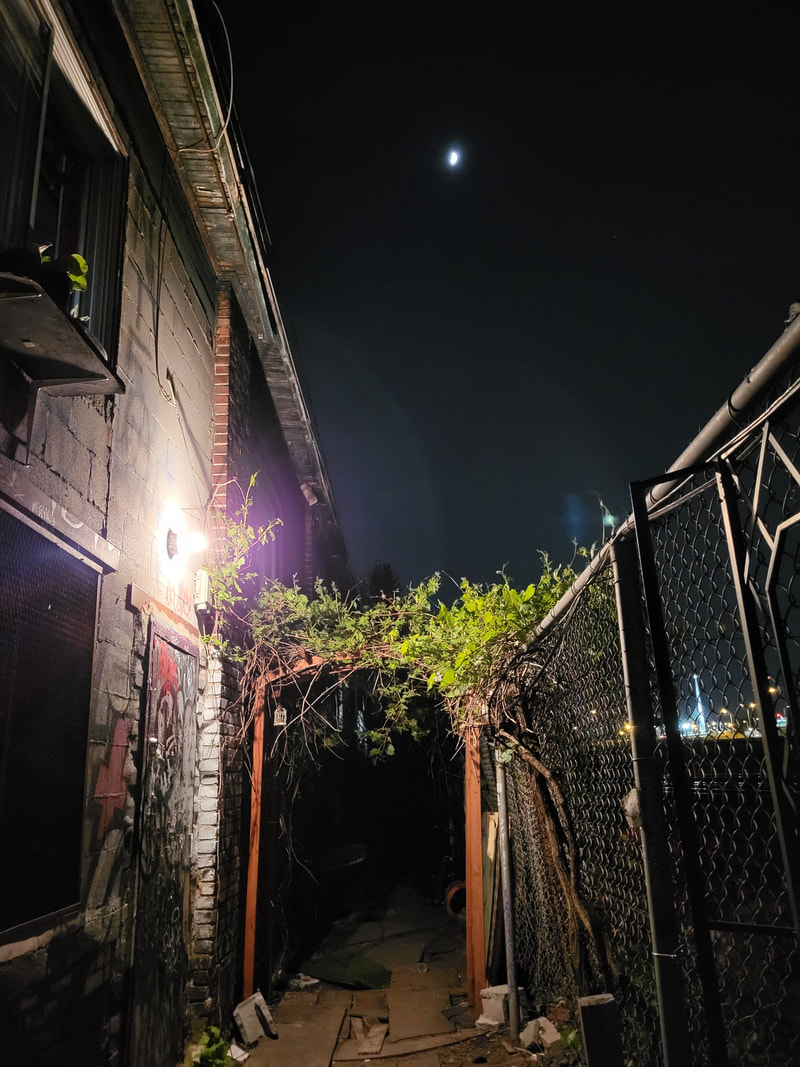
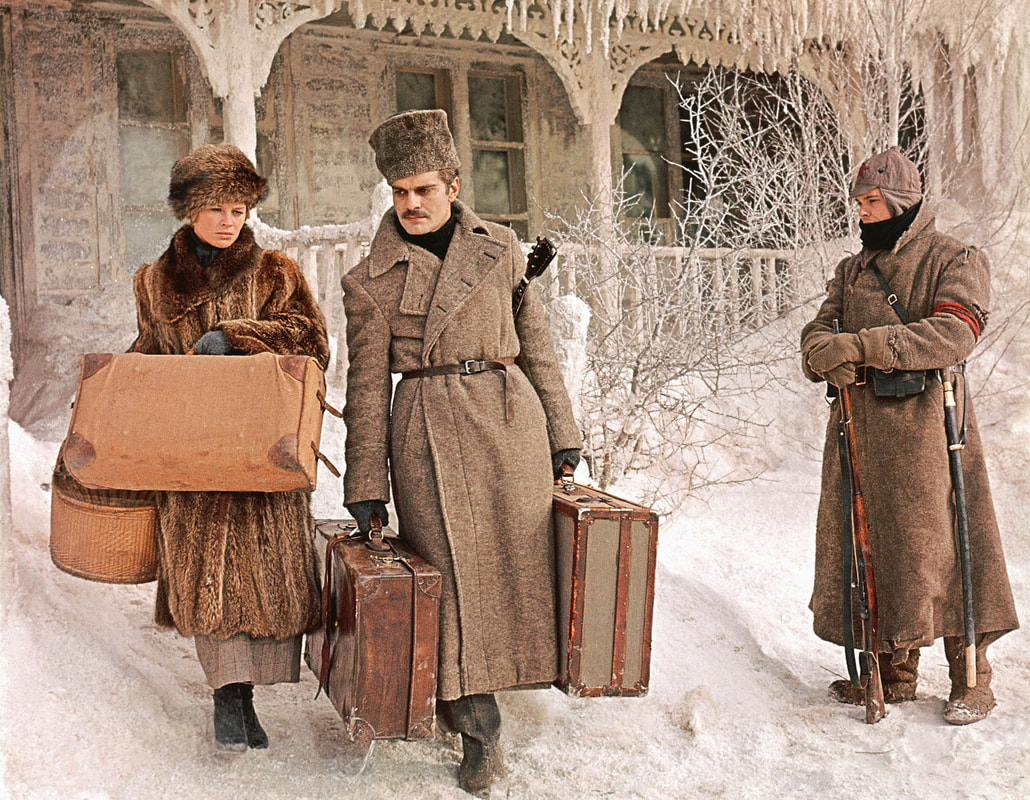
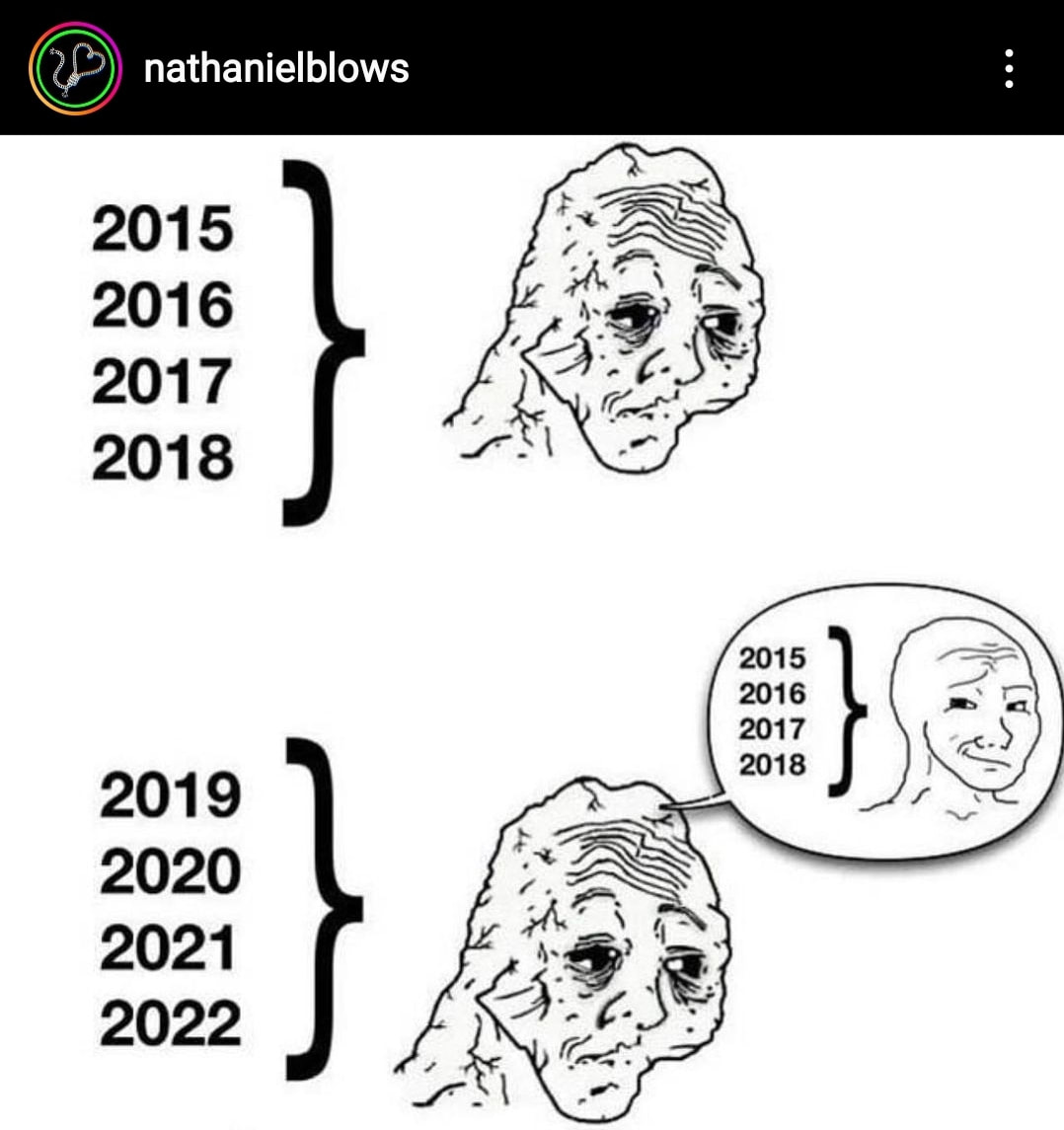
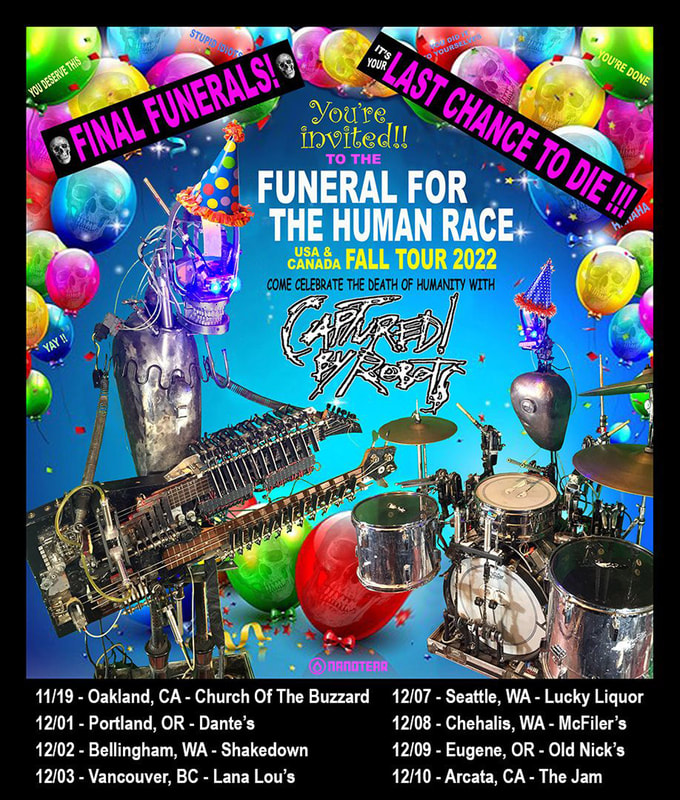
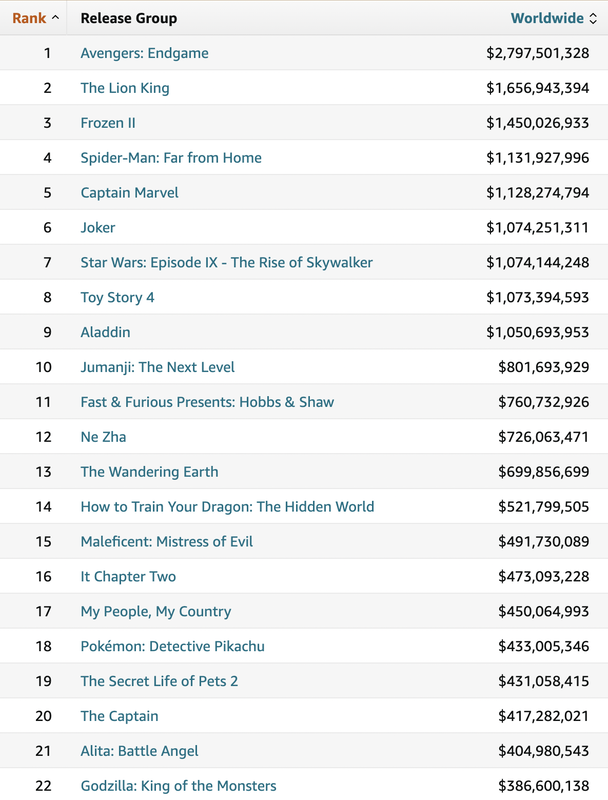
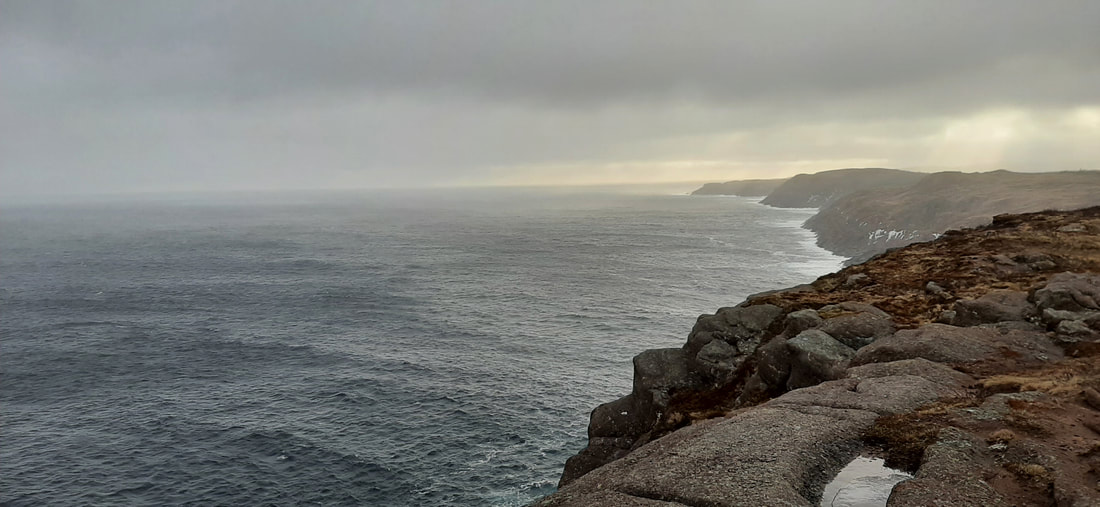
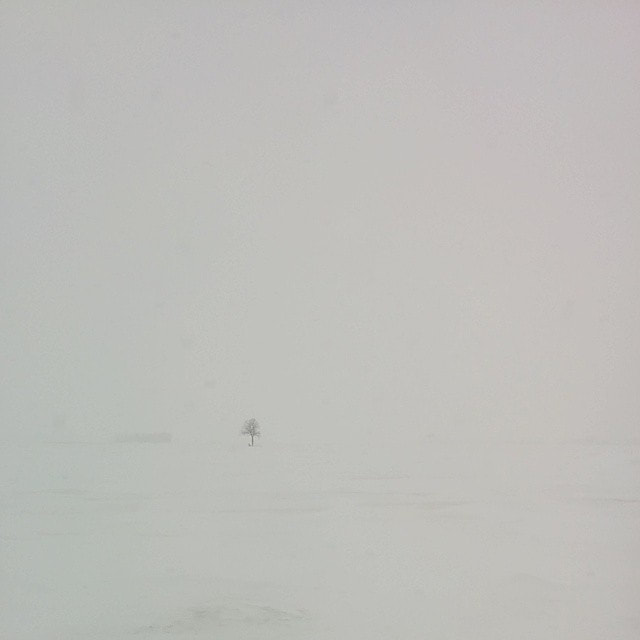
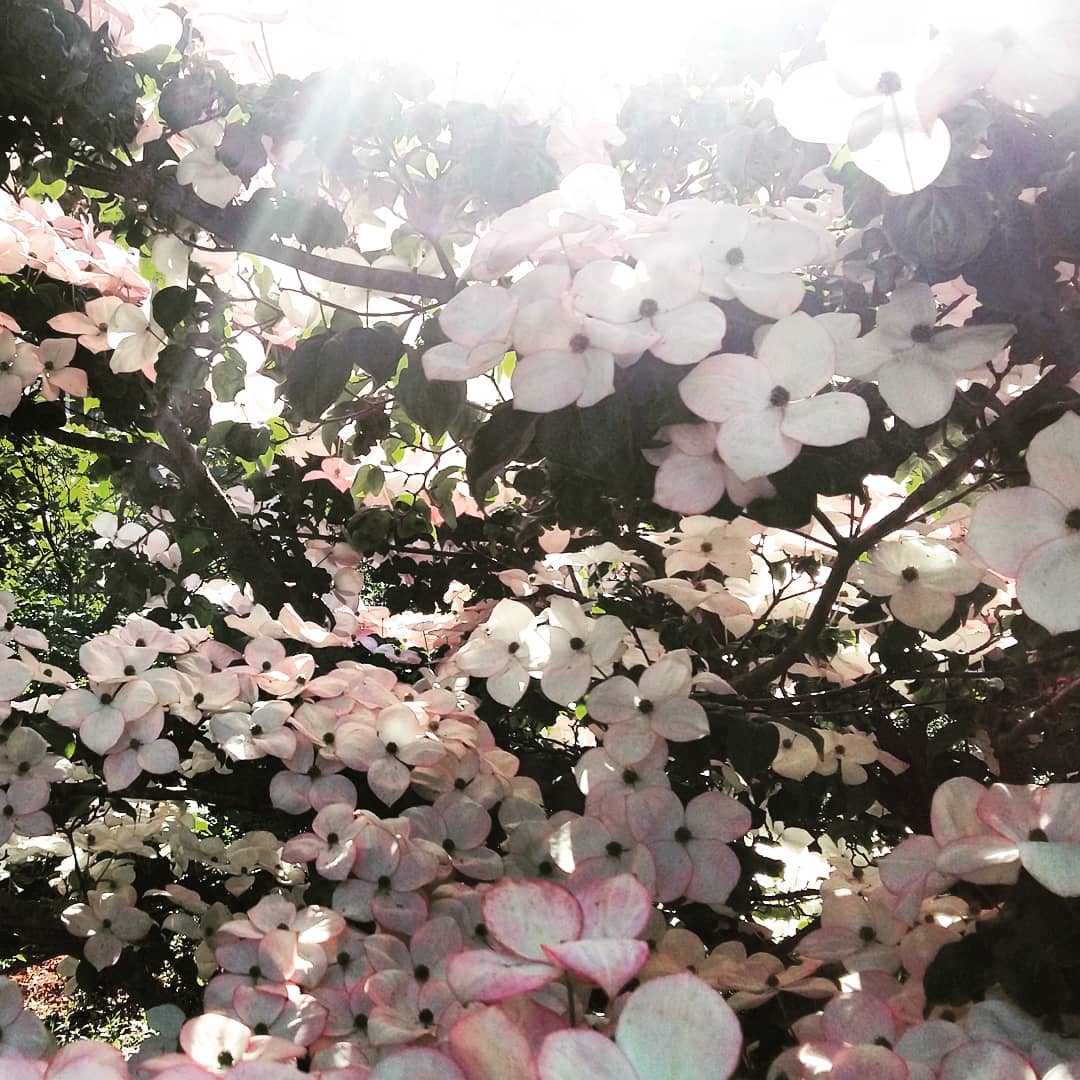
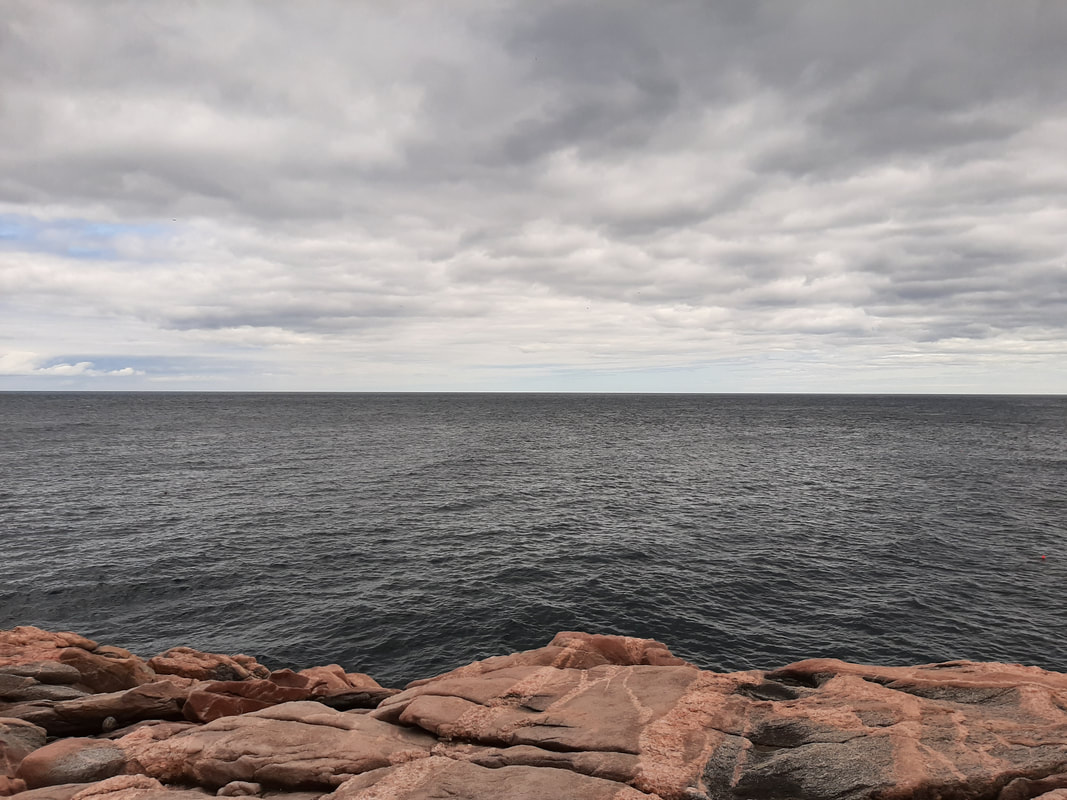
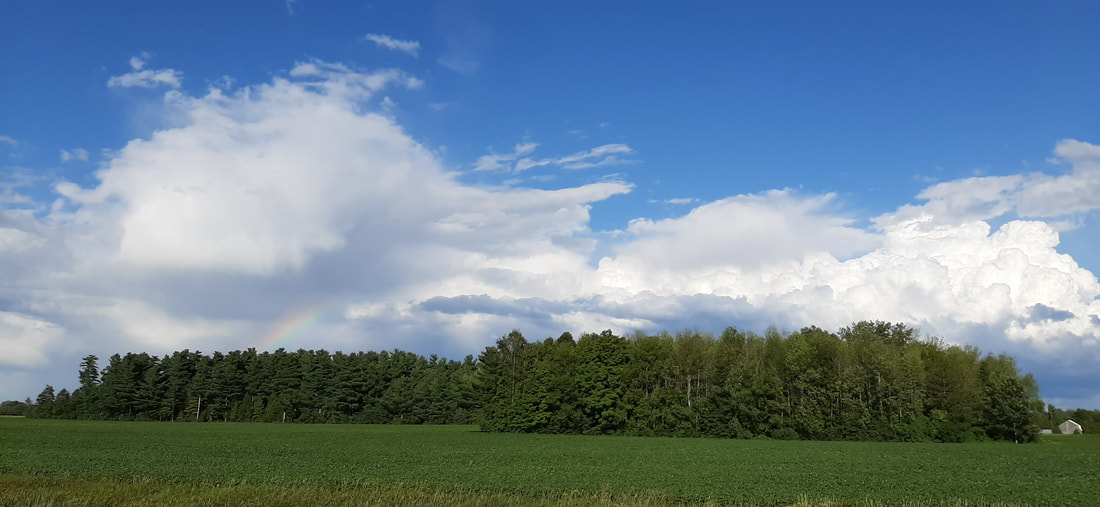
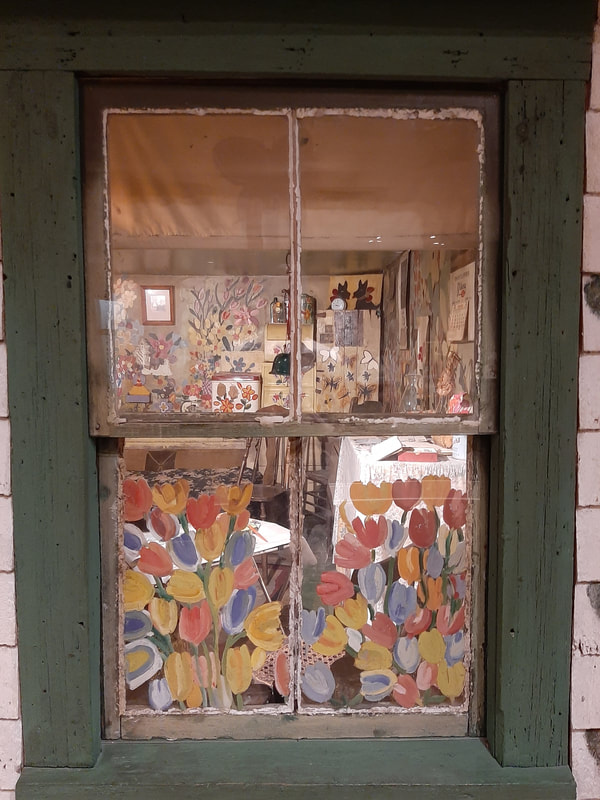
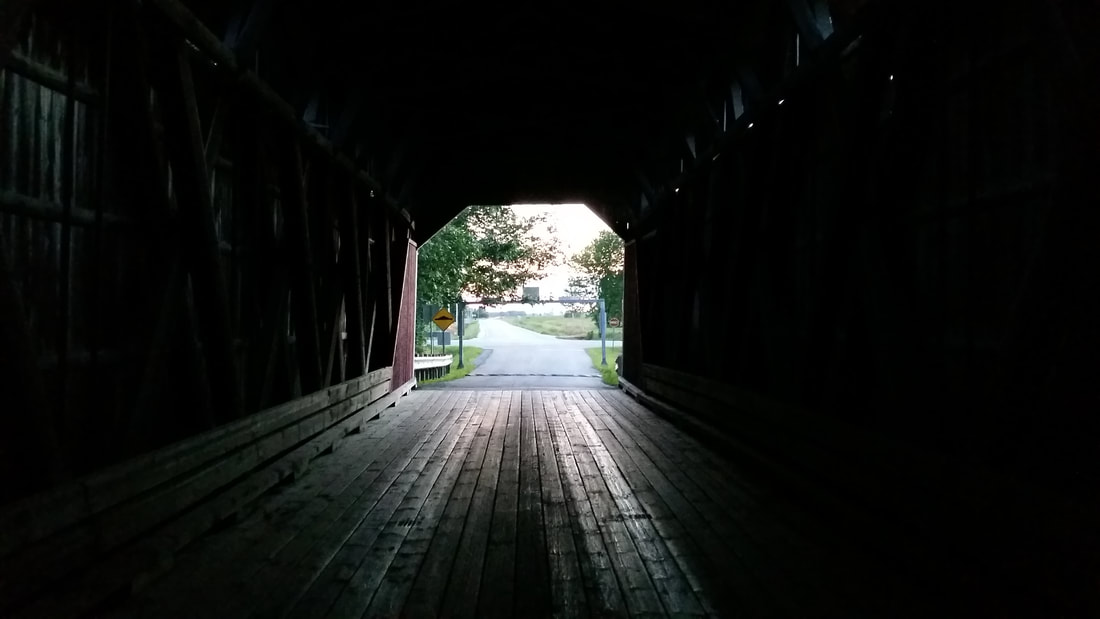
 RSS Feed
RSS Feed